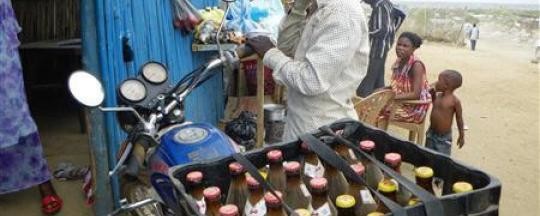Authorities in Kuajok town in Warrap have confiscated 19 AKM rifles, 5 pistols 1 hand grenade, quantities of different types of ammunition and large amounts of locally made alcohol.
In a joint operation carried out on Monday in the market and residences in the vicinity, police and security aimed to enforce an order issued in March that banned all types of beers, sisha smoking and other locally make drinks such as siko, which is a mix of sugar, sorghum and other ingredients.
Authorities destroyed drinks and shisha containers. Only traditional merisa produced with sorghum is not banned because it is believed to be less harmful than other alcoholic drinks.
Speaking to journalists, State Police Commissioner General John Akot Maluth said, “We are carrying out the search to implement laws and resolutions passed in our security meeting to collect illegal firearms in the hand of civilians and other members of organized forces who may possess guns without the knowledge of government as well as banned alcohol.”
Akot said that authorities had sent out several circulars within the organized forces notifying them that all guns must be kept in the stores and only given to those on duty and other assignments may keep them.
Kuajok town Mayor John Akol Akol says those affected by the operation should not blame the government because they have been given enough time to cease making and selling alcohol and sisha in the market.
“I want to tell you that making alcohol and sisha is not the only way one can survive but one should focus on other activities like agriculture or setting up a restaurant and still go on with your life or still get what you need,” he said.
He added that any person found still selling and making the banned drink and smoking illegally will be arrested and fined a fine of three thousand South Sudanese pounds.
Meanwhile, one of the woman whose alcohol and drums have been confiscated by police, Akuindik Morwel, told Radio Tamazuj that she did not know why the government put in place the ban on alcohol and sisha as the first priority since there are many other problems the government is supposed to address.
“We don’t make and sell alcohol or sisha to make profit but to feed and educate our children and there is no reason why the government should stop us in doing this business when we expect it to address the situation of hunger and cattle theft issues,” said Akuindik.
“Some of us are widows and others have no people working in the government to support them and this is the only business we and our entire families depend on,” she said.
She appealed to the police to return her containers which were confiscated so that she sell them or use them at home.




